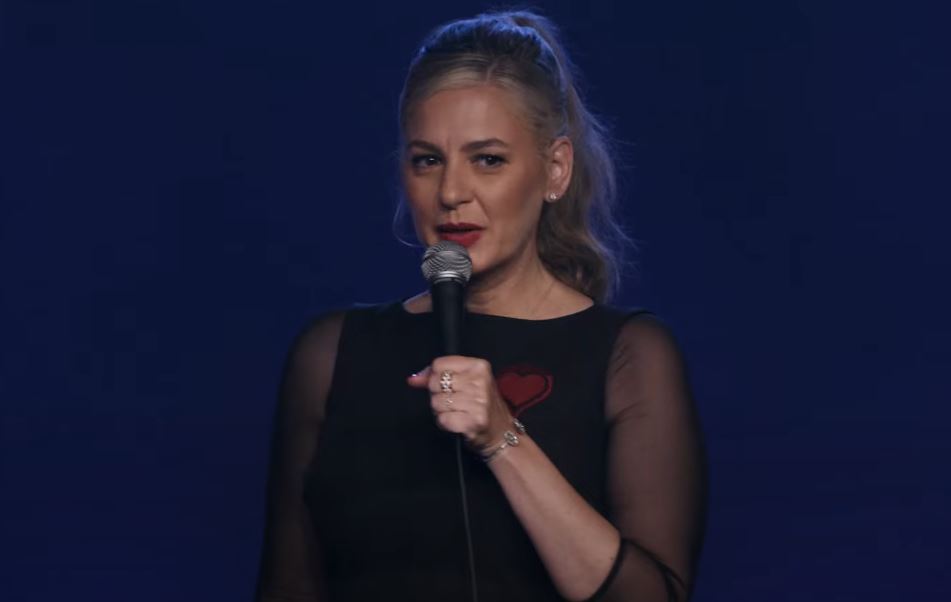The history of Christina Pazsitzky’s parents was one of bravery, uprooting, and an unwavering hope for a better future. They fled Hungary in 1969, when political repression was at its worst, in search of a life in which freedom was more than just a dream. After traveling to Canada, where Christina was born, they eventually arrived in Southern California, which would pave the way for her future.
An unseen yet potent thread running through Christina’s upbringing was the tenacity ingrained in their immigrant experience. Traditional Eastern European values and the uncertain realities of starting over in a foreign country coexisted in their home. It wasn’t without upheaval; Christina has been open about her mother’s battles with mental illness and the turbulent home life that influenced her formative years.
Christina Pazsitzky – Personal & Professional Overview
| Field | Details |
|---|---|
| Full Name | Christina Pazsitzky Segura |
| Stage Name | Christina P |
| Date of Birth | June 18, 1976 |
| Birthplace | Windsor, Ontario, Canada |
| Parents | Hungarian immigrants who fled Hungary in 1969 |
| Childhood | Moved to the U.S. at age five, raised in Southern California |
| Education | B.A. in Philosophy – University of San Francisco; brief studies at University of Oxford Law School |
| Occupation | Stand-up comedian, podcaster, writer |
| Spouse | Tom Segura (married 2008) |
| Children | Two sons |
| Notable Works | Your Mom’s House podcast, Where My Moms At?, Mother Inferior, Mom Genes |
Amazingly, she discovered a way to use humor to deal with these complexities. She converted personal suffering into content that not only amuses but also strikes a deep chord with viewers, much like an artist who transforms scars into brushstrokes. Her perseverance in a very competitive comedy industry was frequently reflected in the discipline her parents had to learn in order to rebuild their lives.
Because of her mother’s unpredictable nature and her father’s practicality, their home was materialistic and nothing felt certain. She creates stories that feel remarkably similar to the messy truths that many people carry in silence, from narrating the peculiarities of her childhood to sharing stories about her father’s remarriage to a Vietnamese woman he met online.
Culturally speaking, Christina’s humorous voice is part of an expanding tradition of entertainers whose work is influenced by the story of immigrant families. Christina reframes the immigrant household as a place of both absurdity and resiliency, much like Kumail Nanjiani reflects on his Pakistani upbringing or Jerry Seinfeld draws humor from his Hungarian father.
The conflict between following a passion and selecting a safe, respectable path is a familiar one for immigrant children. A well-known illustration of this dynamic was Christina’s brief time in law school, which she attended at her mother’s request. Leaving it behind was a clear declaration of self-definition, a declaration that her career would be developed on her own terms, free from the safety nets her parents, understandably, so desperately desired.
Her humorous approach, which is frequently characterized as “tastefully vulgar” with a keen emotional core, reflects the dual influence of her upbringing: the ability to address challenging topics without losing the humor that makes them approachable. Her ability to connect with audiences has significantly increased as a result of this strategy, which enables her to tackle delicate subjects while maintaining their relatability and accessibility.
Christina has created a platform for these family stories to flourish through her podcasting business, especially Your Mom’s House, which she co-created with her husband Tom Segura. She has benefited greatly from the long-form format, which has freed her from the limitations of a comedy set to examine her parents’ past, eccentricities, and impact on her life.
These stories have a bigger social impact than one might think. By sharing them, Christina is building a bridge across generations, cultures, and experiences in addition to making people laugh. There is solace in acknowledging common challenges and triumphs for individuals who were raised with immigrant parents. Others find it to be an eye-opening look at the kind of adaptability and resiliency that frequently underpin a comedian’s assured on-stage persona.
Christina’s story revolves around her parents’ journey—leaving an authoritarian nation, adjusting to new cultures, and starting a family in a foreign country. They gave her more than just a heritage; they gave her a perspective that made life seem both erratic and incredibly valuable. Their tale, which she continues to tell in her performances, supports the idea that humor can be a very useful tool for both connection and survival.

